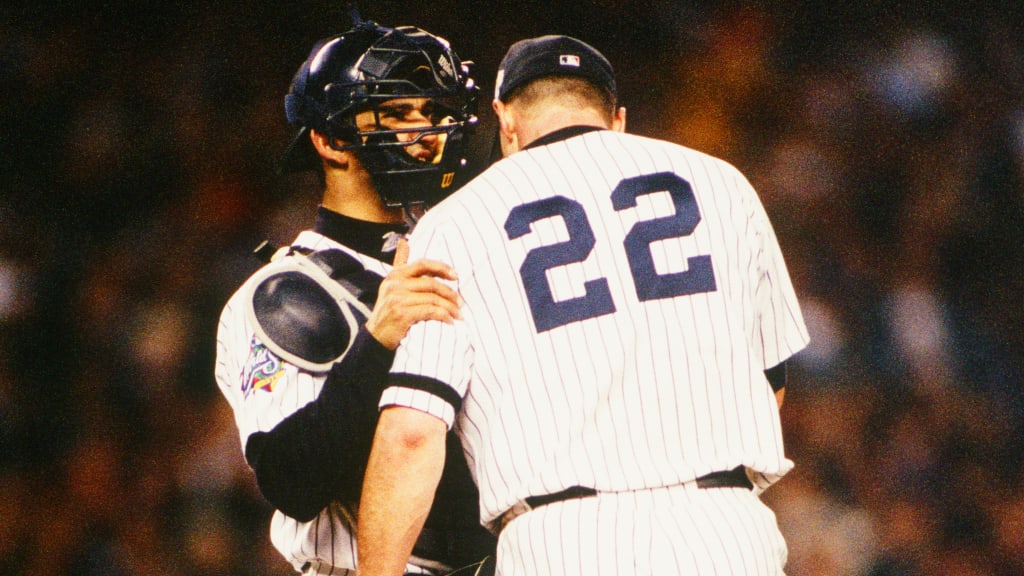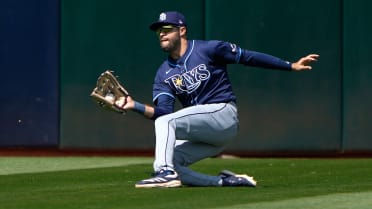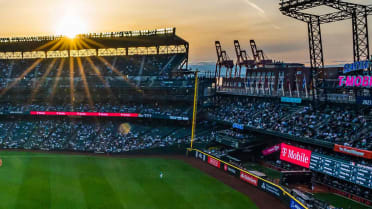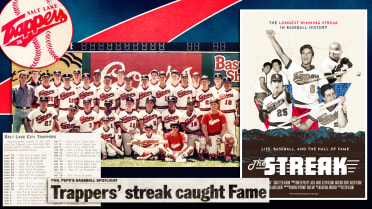Yankees Magazine: ‘Relentless’
After making history in 1998, the '99 Yankees proved there would be no resting on their laurels

The cheers continued for a solid two minutes, with 33,620 fans at Fenway Park standing in rare salute to a Yankee. Joe Torre had arrived in Boston earlier that day --May 18, 1999 -- having decided it was time to return as Yankees manager after being diagnosed with prostate cancer during Spring Training. Moments before the game against the Red Sox, Torre directed his trusted elder, bench coach Don Zimmer, to take the lineup card to home plate.
“You do it, Joe,” Zimmer responded.
Zimmer had reluctantly accepted the managerial reins while Torre convalesced and watched from a distance as the first-place Yankees compiled a 21-15 record, one game up on the rival Red Sox. But the Yankees had lost five of their last six games heading into Boston, adding another layer of uneasiness around the club in Torre’s absence.
“It started out a little rocky,” Torre said recently, 25 years after that ’99 season. “Zim took over, and he had a tough time because George [Steinbrenner] is not an easy guy to work for, and expectations are always sky high. But once we got back, we started playing, it was like a day at the office. Not for me, because it took me time to get to the point where baseball was as important as it always has been. Because when you’re diagnosed with cancer, it’s something you think about every day.”
Torre’s choice to come back, on a mild Tuesday in Boston, surprised even his own players. As the manager walked up the ancient ballpark’s visiting dugout steps, the fans at Fenway were ready to call a momentary cease-fire in the Yankees-Red Sox blood war to show their respect.
“I have goose bumps just thinking about it,” said Torre of the night when the Yankees’ 1999 season truly began, a journey that would lead to another world championship.
****
There’s no such thing as a ho-hum World Series championship, and yet, as we look at the 25th anniversary of 1999 -- coming smack in the middle of three straight titles -- there’s something about that year that resembles the archetypal overlooked middle child.
“Well, for good reason,” Torre said. “In ’98, we won all those games, and in 2000, we’re playing the Mets, and nobody else thought anything else existed at that time.”
Still, no championship team ever gets forgotten. Nearly the entire Yankees cast from ’98 was poised to return for 1999, but it was touch-and-go with one of the team’s most popular players.
Just a few weeks after the parade up the Canyon of Heroes, with Thanksgiving still approaching, center fielder Bernie Williams and the Yankees were miles apart in contract negotiations. Of all teams, the Red Sox were in hottest pursuit of the free agent, with a reported seven-year, $91 million offer for Williams to switch sides in MLB’s greatest Civil War. And the Yankees were actually considering Plan B.
Torre played golf in Arizona with free agent Albert Belle, and soon the Yankees had a verbal agreement to sign the controversial slugger to a four-year deal.
“Bernie called in a panic, ‘What’s going on here? Why did this happen?’” said Brian Cashman, who was barreling into his second year as Yankees general manager at the time.
In a flash, Williams made a personal plea to Steinbrenner. Soon, Williams and his agent, Scott Boras, were bound for Tampa, Fla., for further negotiations after Belle backed out of coming to New York. At the time, then-Orioles owner Peter Angelos told New York Times writer Murray Chass that he was closely watching the Red Sox-Yankees offseason soap opera.
“We decided we couldn’t sit on the sidelines [and] let Belle become part of that Yankees lineup,” Angelos said after swooping in with a reported five-year, $65 million offer for Belle -- one that, in retrospect, helped preserve Williams’ pinstriped legacy. The 1998 AL batting champ re-signed with the Yankees on Nov. 25 -- a seven-year deal worth nearly $90 million.
****
With the exception of the inspirational Tim Raines, who had signed a free-agent contract with Oakland, Cashman had brought the band back together in ’99 for another run. That is, until Toronto Blue Jays general manager Gord Ash phoned Cashman to revive a blockbuster trade conversation.
Roger Clemens was coming off two straight AL Cy Young Award seasons, yet the Blue Jays had finished more than 20 games out of first place both times. Unhappy in Ontario, The Rocket had requested a trade, but potential deals to the Astros and Rangers in Clemens’ home state of Texas had fallen apart.
“I worked on that all winter,” Cashman said of trying to land Clemens.
Drained by that pursuit as Spring Training 1999 began, Cashman pressed Ash to make him an offer. What Cashman heard, as he’d later say, made his knees buckle. Toronto didn’t want Cashman’s prime prospects at the time -- Mike Lowell, Ramiro Mendoza, Shane Spencer or Ricky Ledee. Ash asked for left-hander David Wells, infielder Homer Bush and reliever Graeme Lloyd.
Resisting the urge to give an immediate “YES!” Cashman convened a meeting with his lieutenants and Steinbrenner at Malio’s Prime Steakhouse, a favorite go-to Tampa spot that has since moved downtown. Today, a fitness center stands on the property where the Yankees’ brass regularly met to discuss team business over steaks and Italian wine, often in the presence of The Boss. But the Clemens trade meeting might have been a more celebratory night than anything else.
Come morning, the feeling of a hangover was transferred to Wells. Author of a perfect game in 1998 and a reliable postseason force who immersed himself in everything pinstripes, Wells was shattered by the news. Lloyd, a key part of two world champion bullpens, felt a mistake had been made.
“I’m shocked,” he told reporters at the time. “To break up the team ... it’s a shame.”
****
A hard-edged ace and a veteran of past Yankees-Red Sox wars, Clemens was “ecstatic” about pitching for Steinbrenner.
“I met my match in a guy who wants to win,” Clemens told reporters. “This guy, he settles for nothing less. I enjoy that.”
Believing the power-armed Clemens was approaching his twilight years, the Red Sox watched their former ace rejuvenate himself within their own division, and it might have cost them the ’99 AL East title.
“He was one of my all-time favorite Yankees,” said Cashman. “And that first year, he wasn’t even full Rocket,” as Clemens was dealing with some lower-body issues.
Cashman nonetheless decided to chase his white whale that winter partly out of fear.
The ’98 club had just etched itself into the history books alongside the 1927 Murderers’ Row Yankees of Babe Ruth and Lou Gehrig. Cashman worried that the motivation to dominate might not be quite as strong in ’99. Maybe there’d be a subconscious feeling of superiority, that the ’99 Yankees would take the field with a three-run lead before they ever came to bat.
“Listen, we were 125-50,” Cashman said of the ’98 club’s record, including the postseason. “And I was worried about certain things going on with our team.”
Weren’t the laurels and plaudits still being thrown in early ’99, extending the heady feeling of that ’98 championship season, a good thing? Not content to find out by being complacent, in one bold move Cashman had snapped Yankees Universe to attention.
“Nothing more motivating than importing the hardest-working pitcher of all-time, arguably, who’s done everything in the game except win a championship,” Cashman said of landing Clemens. “If that can’t play well, then nothing will. I thought it would be a [heck] of a jolt.”
****
The 1999 Yankees spent 131 days in first place, winning the AL East by four games over Boston. It was a killer ensemble, with a lineup -- including Jorge Posada, Paul O’Neill and Chili Davis -- that scored exactly 900 runs without anyone hitting more than Tino Martinez’s 28 home runs.
When the MVP voting was revealed that November, the highest Yankee on the ballot was Derek Jeter, who finished sixth. The future Yankees captain, who turned 25 years old that June, had his finest offensive season in 1999, batting .349, leading the league in hits and setting personal career marks with 24 homers, 102 RBI and a .989 OPS.
On the pitching side, David Cone’s 3.44 ERA led a staff that included double-digit winners Andy Pettitte, Orlando “El Duque” Hernandez, Hideki Irabu and Clemens, who would toss 7 2/3 innings of one-run ball in the World Series clincher against Atlanta.
Torre’s club blitzed through the postseason with an 11-1 record, without anything close to the drama of October 1998, when that vaunted Yankees team trailed 2-games-to-1 in the AL Championship Series against Cleveland.
In the 1999 AL Division Series, the Yankees dispatched the Texas Rangers in three straight games, setting up an ALCS against the hated Red Sox. El Duque took home ALCS MVP honors as the Yankees won the best-of-seven series in five games, clinching at Fenway Park, where the fans were a bit less magnanimous than they had been on the night of May 18.
“These guys were relentless,” Torre said of his ’99 club. “They played as a team, they were unselfish, and that to me was the most important thing about winning.
“There’s a lot of times you glorify individual achievement, which is all well and good, but what you accomplish as a team is so much more meaningful to me, because you watch all these guys pull in the same direction and put their trust in me, which certainly made me feel good.”
If there were any doubts about the ’99 club’s ability to follow a tough act in ’98, the magic dust arrived on July 18 -- Torre’s 59th birthday -- when Cone pitched his perfect game. On Yogi Berra Day. With the Yankees’ first perfect game pitcher -- Don Larsen -- throwing out the first pitch.
“What ’99 displayed for us was the overall depth of our pitching rotation was a little bit underrated throughout that dynasty period,” Cone said. “We had at least four different pitchers that took turns as being a No. 1 guy.
“El Duque started Game 1 against the Braves and just absolutely stuffed them and set the trend, really, throughout that World Series.”
In the process, the Yankees’ staff overshadowed an Atlanta club that boasted three future Hall of Fame pitchers in Greg Maddux, Tom Glavine and John Smoltz.
In a rematch of the ’96 World Series, the great Mariano Rivera claimed 1999 World Series MVP honors, saving two games and winning another.
If Clemens had initially had trouble blending into the Bronx scene, his Game 4 gem made him a Yankee for keeps.
“To me, that’s the thing you were proud of, because you knew when people came over, they wanted to fit into what we were doing,” said Torre, who had overheard a conversation Clemens had on the phone with his mother during the ’99 season.
“I’m just trying to fit in,” Clemens said within earshot of Torre.
“I waited for him to get off the phone,” Torre remembered. “And I said, ‘No, you just go ahead and pitch. Don’t worry about fitting in, just do what you normally do.’”
This was the Torre touch. Torre’s absence early in the year had been “a huge loss that we felt every step of the way,” Cashman said. “With all the injuries and the health of Joe Torre, I just remember the first half was a grind. It was tough.”
But all’s well that ends well, and looking back 25 years later, 1999 was clearly anything but ho-hum.
“It just felt like two totally different seasons,” Cashman said.
This story appears in the April 2024 edition of Yankees Magazine. Get more articles like this delivered to your doorstep by purchasing a subscription to Yankees Magazine at www.yankees.com/publications.



